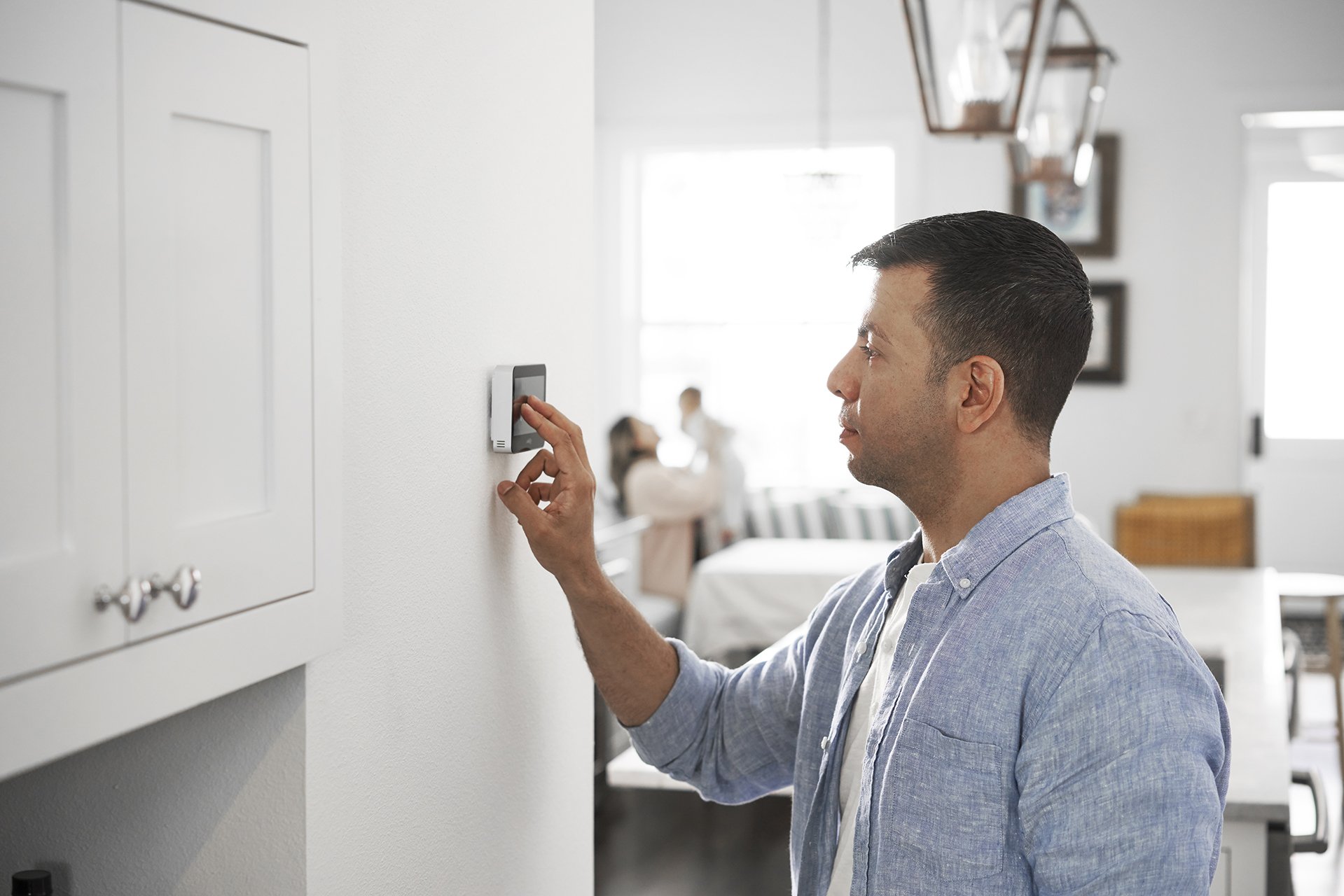Top 5 HVAC Problems and Solutions for Better Home Comfort
The weather here in Vancouver, WA, can be a bit unpredictable. In the winter, it can be wet and chilly, while in the summer, it can get moderately warm. Staying comfortable year-round means maintaining your HVAC system.
Unfortunately, even the best systems run into issues every now and then.
From dirty filters to thermostat malfunctions, this article focuses on 5 of the most common problems with HVAC systems. We will also share how to fix them so you can enjoy better home home comfort here in Vancouver!
Dirty Filters
One of the most common issues we see with local HVAC systems is a dirty filter.
When your filter is dirty or clogged, it can restrict airflow. This will force your HVAC system overtime to circulate air throughout your home.
Not only is this bad for your system's overall efficiency, but it can also increase your energy consumption.
Higher energy consumption = higher utility bills.
If left unchecked, this poor airflow can eventually affect other system components. This may shorten the overall lifespan of your HVAC. Luckily, diagnosing and fixing a dirty filter issue is pretty easy.
Start by locating your filter. Most systems have it in the air return vent. Examine the filter to check for clogs from dust, pet hair, or other debris.
PRO TIP: Shine a flashlight into the filter. If the light doesn't pass through, it's time for a change.
If you have a bad filter, you can replace it by taking the old one out and sliding the new filter in place. Just make sure that the filter you buy is the same type and size and that it’s facing the right way.
As a rule of thumb, it’s a good idea to check your filters at least every 30 days. We also recommend replacing them approximately every 60 to 90 days. If you have seasonal allergies or pets, you can replace them more often.
Thermostat Malfunctions
Has your air conditioning been malfunctioning or the thermostat been glitchy? It could be an issue with your thermostat.
The wrong thermostat settings can force your system to act erratically. You might experience symptoms like inadequate heating/cooling or continuous cycling. These symptoms stress your HVAC system, forcing it to work harder and increasing your energy costs.
To make sure your thermostat is working correctly, start by checking the settings.
First, make sure you set your thermostat to the right mode (either heating or cooling) and set the appropriate temperature for the season.
People often mistake the wrong setting for a malfunction.
If the settings are right, though your thermostat isn’t responding as it should, you might just need to replace the batteries.
If the batteries are new, the issue might be with the installation or dust inside.
If leveling, reinstalling, or cleaning the thermostat doesn't work, you may need to call a professional. This is especially true if you have a relatively new unit or if there are obvious wiring issues.
Mechanical Wear and Tear
Over time, your HVAC system’s mechanical components can experience wear and tear.
Fan motors, belts, and bearings are often the first things to go. If you don’t address these issues, they can lead to system failure and loss of energy efficiency.
We highly recommend performing regular mechanical component checkups for signs of wear.
For example, you can carefully listen for unusual noises like grinding or squealing. These can indicate that belts or bearings need attention. On the other hand, if your belt has cracks or seems a bit loose, it’s time for a replacement.
Beyond regular checkups, it’s important to maintain a cleaning schedule. Make sure all moving parts are free of dirt, dust, and debris.
We suggest doing regular DIY maintenance, but some problems need professional help such as:
Persistent noises
Temperature issues
Full system failures
Clogged Drains
Nothing impacts HVAC system efficiency quite like clogged condensation lines.
These lines or drains should carry away condensation produced by the system’s evaporator coil.
When these lines are blocked, water can back up and turn into humidity. This in turn, can damage your system. If left for too long, this humidity can turn into mold, which can be a major safety hazard for your family.
One of the best ways to keep your drains from clogging up is with regular cleaning. Luckily, the process is quite simple. With a long, stiff wire, you can gently clear any visible blockage in the drain opening.
Once cleared out, flush the line with a mixture of water and vinegar, or water and bleach to break down any buildup.
We also recommend installing a condensation trap to prevent debris from entering the drainage line.
Refrigerant Leaks
Refrigerant is crucial to your heating and cooling system, as it absorbs heat from the indoors and releases it outside to cool your home.
Low refrigerant levels can reduce system efficiency, which can leave you spending more to run your system. Ultra-low levels, on the other hand, can harm your system.
There are a few signs you might be dealing with a leak, including:
Less effective cooling
Ice on the evaporator coils
Unusual hissing sounds
Higher energy bills
To make sure your refrigerant levels are where they should be, keep an eye on your AC unit. Look for oil residue around the AC connections, as refrigerant leaks often leave an oily substance behind.
Conclusion - Keeping Your Heating and Cooling System In Great Shape
Maintaining your HVAC system is crucial for ensuring optimal indoor comfort throughout the year. By addressing common issues like dirty filters and thermostat malfunctions, you can enhance your system's efficiency and longevity.
For high-quality HVAC services in Vancouver, WA, you can trust the experts at Millers Heating and Air. We are HVAC specialists and can answer any of your questions or schedule a check-up!
FAQs
Why is my HVAC system not cooling/heating properly?
The main causes of poor cooling or heating are dirty filters, low refrigerant levels, and faulty thermostat settings.
What is the most common part to fail on an HVAC?
Capacitors fail pretty commonly. Getting these fixed as soon as possible is key, as they help the motor start and run efficiently.
How often should I change my air filters?
Most experts recommend changing filters every 60 to 90 days.
Can I fix a refrigerant leak myself?
While you can fix a leak, we don’t recommend it. Most people don't have the right tools or certifications needed to handle refrigerant safely and following environmental regulations.
Is it necessary to hire a professional for HVAC maintenance?
There are many things you can do to optimize your HVAC maintenance. Hiring a professional is the best way to make sure your system operates efficiently and safely. We are here to help with all of your heating and cooling in Vancouver WA.

